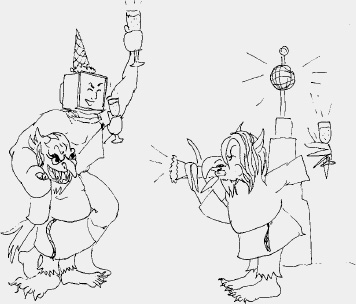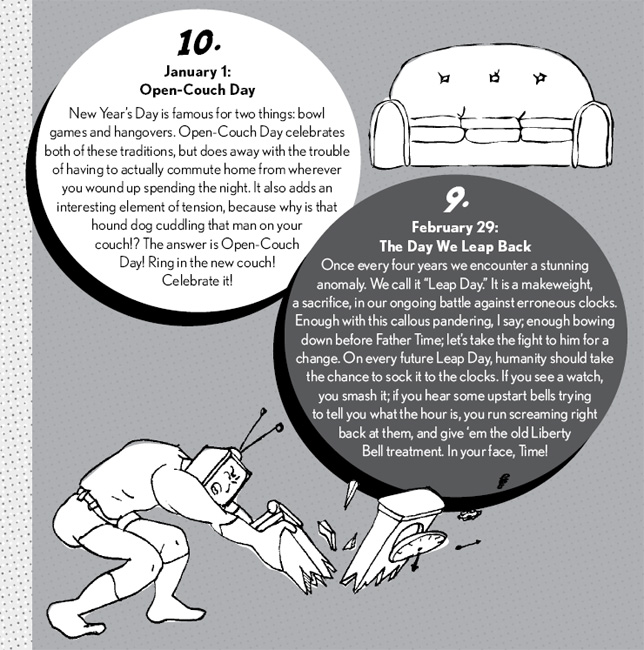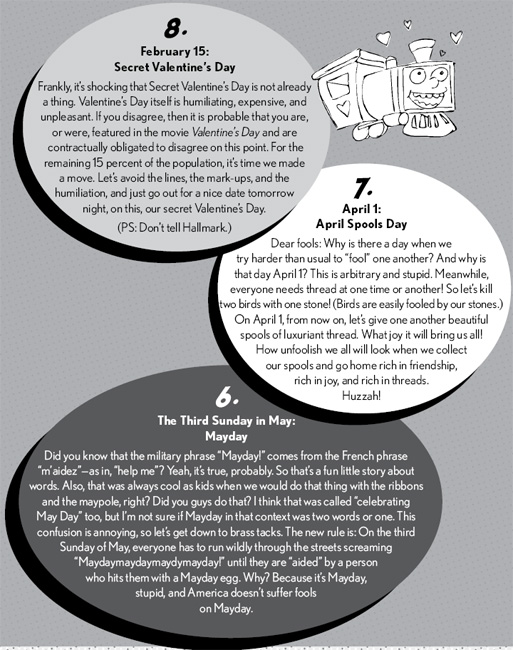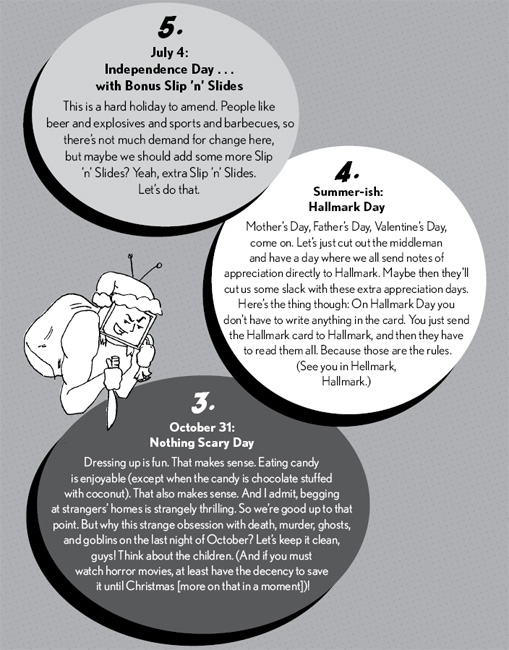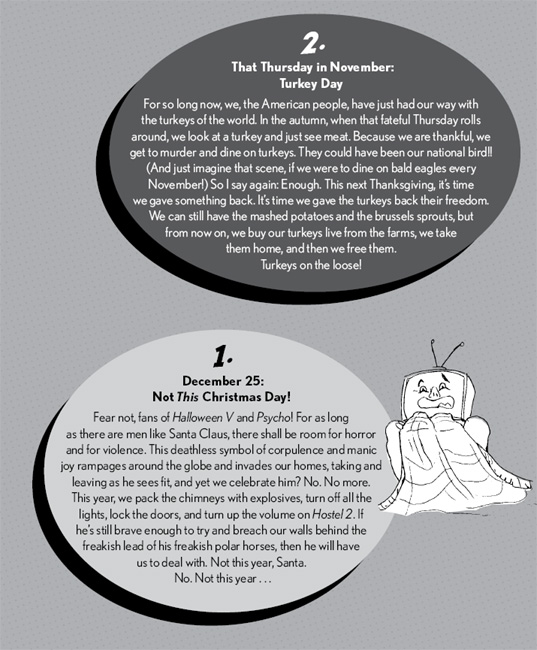Party style: All-in.
Party motto: “Four of us wolves, riding around the desert together . . . in Las Vegas, looking for strippers and cocaine.”
So far, the twenty-first century has been very kind to dudes in comedy. Judd Apatow’s mini-empire has given rise to a steady stream of smart and original movies that feature as many or more laughs than before and as many penises (or more), but which also have real, recognizable characters as well. Not always, but a lot of the time. That has represented a real step forward for comedy as a whole. Now the onus is on the filmmakers to not just make us laugh but to also make a movie. Even when bachelor parties are involved.
The Hangover is a clear indication of that general progress. It’s not hard to imagine this movie—which, when it comes down to it, is really just about getting into a mess and then getting out of it again (plus roofies, and Mike Tyson, and Mike Tyson’s tiger)—as a pretty crass grab for summer movie dollars, but the pressure of the comedy competition at the time mandated that they at least try something new. So what they did was just keep everything they already had and then lay over it an entirely new genre: a mystery. So now, instead of just laughing as they get hit with things, we also wince as time begins to run out on their desperate effort to reconstruct the events of the night before, find the bridegroom-to-be, and get him back home in time for the wedding. It’s a simple innovation but it makes all the difference. And when it begins to fall flat, well, there’s always Zach Galifianakis (aka the cause of and solution to all of The Hangover’s problems).
Party style: Absurdist.
Party motto: If life isn’t a party then why is everyone spending so much money on party pants?
PSY’s elevator pitch of the concept behind “Gangnam Style” (as described on Ellen) is “dress classy and dance cheesy.” Metaphorically speaking, this is almost definitely the secret to a happy life. Literally speaking, it’s doubtlessly—without a doubt—the secret to effective party-going. By dressing classy, we show our willingness to commit fully to a social event and treat it with respect; by dancing cheesy, we show that fun comes first and that we shall judge not, lest we be judged. (And by screaming at butts, emerging spontaneously from hot tubs, and lounging at playgrounds we insist that, although the world may be absurd, we will always be absurder.) This video is the twenty-first century equivalent of an etiquette guide for the culture-critiquing, horse-imitating, trash-ignoring socialites of the future. Over a billion YouTube views after the video released, the entire world is Gangnam now.
Party style: Messy.
Party motto: “Uh . . . no, that’s incorrect.”
Tom Hanks is now most famous for Forrest Gump, Saving Private Ryan, and for turning a bloody volleyball into his friend. But once upon a time, Tom Hanks was just a goofball. He was funny. Bachelor Party happened at just about the perfect moment: just before everyone stopped being surprised to see such a normal-looking dude starring in major motion pictures. At this point, he is clearly not looking for Oscars—he’s just happy to be working. And you can’t really do this movie unless you’re willing to give in to it entirely. Bachelor Party sets the template for offensive, immature, prewedding party movies. It’s got animals, Tawny Kitaen, sex, drugs, and a bus driver. Bus drivers in movies: as rare as party donkeys in real life.
Party style: Samba.
Party motto: Party in the front, business in the back.
There are three basic contenders for best party in the world: Carnival in Brazil, Oktoberfest in Germany, and New Year’s Eve on planet Earth. New Year’s Eve has a giant ball, Oktoberfest has giant beer mugs, and Carnival has heat, the streets, and a serious beat. It’s a party as pervasive as sunlight; it touches every inch of the country, and you can feel it in every scene of Black Orpheus. The film retells the mythical story of Orpheus (a man who has the power to charm beasts with his music) and Eurydice (his beloved wife). After Eurydice dies, Orpheus ventures down to the underworld to retrieve her with depressing results. The movie transports the story to Rio during Carnival, and the sheer vitality of the surroundings— not to mention the light and the music—makes the ultimate annihilation at the end seem that much more poignant and profound. It’s a great party movie because it all takes place at the best party on Earth, but it’s a great movie because nothing is exclusively joyous. Everything here implies its opposite. And so when the sun rises in the film’s final scene, it makes the deaths seem all the more final and complete.
Party style: Desperate.
Party motto: We’re all gonna die.
There’s no kind of party like an end-of-the-world party cuz an end-of-the-world party don’—oh, whoops. An end-of-the-world party definitely stops, but that’s also the whole point. When the world ends tomorrow, there’s just no point in holding back today. Becky Sharp, the heroine of the novel (which contains, it should be noted, the subtitle “A Novel Without a Hero”) doesn’t want to hold back anyway, but her own passionate outlook is generally shunned by the more staid society around her. Until, of course, Napoleon comes to town. Then it’s time for everyone to party. The ball scene in the novel is based on a real event, on the Duchess of Richmond’s ball on the night before the Battle of Waterloo. Things are going to end badly. That’s the case for the soldiers—and also for the characters in the novel as a whole. The world is a rough place. So pass the champagne and let’s party like it’s 1899.
Party style: Cathartic.
Party motto: “There is such a thing as fate, but it only takes you so far.”
During high school the tension between the things that we want to do and the things that we fear to do is at an all-time high. Some kids throw the shackles of embarrassment off earlier than others, but whenever that moment of release happens, it feels good. The four seniors at the center of Can’t Hardly Wait each have one great hope (and one great fear) on graduation night, and in the end, they all get what they’re after—even if what they’re after isn’t exactly what they had in mind at the outset. The ”party of the year” that everyone is heading to is the place where it’s all going to come to a head, and the only thing that’s surprising, in retrospect, is that more teen movies don’t take place at their own version of the party of the year. It’s a revealing night and a pretty solid stand-in for the blowout graduation party that everyone wants but few people actually have. Also, lots of future stars! Also, so much 1990s!
Party style: Open to interpretation.
Party motto: “More crackers, please . . . more crackers, please . . .”
When we’re teenagers, we don’t always get to make our own decisions (curfew), and when we do, we often make the wrong ones (hence the near universal desire to keep old yearbook photos from ever seeing the light of day again). When we’re in our thirties, many of our decisions have already been made, and when we are given the opportunity to make a choice, we are often hampered by the past. But in our twenties, we do get to make our own decisions, and those decisions seem to have real promise. (We haven’t learned our lessons yet!) To put that another way: The twenties are a good time for parties—rock stars know it, party girls know it, and pretentious Norwegian literary types know it, too.
Reprise takes us deep inside the lives of a few close but competitive friends as they struggle to make their names in the world. That sounds stressful, but these close but competitive friends are also young and eager and that paves over a lot of what could be grating and obnoxious. In one pivotal scene, a stale party, attended by a number of apparently supercilious types, is disrupted by the song “Deceptacon” by Le Tigre. The party comes to life because people want to party. And then the music is turned off, because the host is worried about the noise. There’s a pause as the future hangs in the balance and then, behind the host, the sneaky DJ cranks the music on again and that’s the end of that. This is the time for deferred payments, and sometimes you just have to seize the moment. Even if you’re writing a novel. Even if you’re European.
Party style: Inclusive.
Party motto: Gotta spend all this money on something, right!?
For parties, as for life, the lower your expectations are, the happier you’ll tend to be with the outcome. Dave Chappelle went even further than low expectations for his enormous Brooklyn block party: He created a party with almost no expectations. Until the day of the concert the location was a secret, the nature of the entertainment was a mystery, and to some of Chappelle’s neighbors that he bussed in from Dayton, Ohio, even once the performers were revealed, they remained a mystery. Despite (and because of) these unknowns, the day was a huge success. It rained, Kanye West showed up, the Fugees reunited, Chappelle hosted, Gondry filmed, and everyone clearly had a really great time.
Party style: Infectious.
Party motto: “Everybody just have a good time.”
This is the song and the video that everyone on the planet knows they should hate but can’t quite manage to reject. It is cartoonish in the best possible sense. The outfits are crazy and the lyrics are unimportant, but the joy is infectious and the dance moves are head-explodingly amazing. If you invite someone to your party and that person can hurl himself up in the air and then land on his back in such a way that it looks like his back has “caught” his body (Is his back made of feet!? What is going on there!?), then you are the winner of party rocking. LMFAO already knew that, but that guy in the purple jacket puts their aristocratic standing beyond dispute. These guys are profoundly party.
Party style: Haphazardness.
Party motto: Better sorry than safe.
Parties aren’t usually transformative. They’re meant as a diversion—as a way to forget or escape, or, most commonly, just relax. It seems possible that someone, sometime, might have discovered who they really were or become the person they really wanted to be while shouting conversation fragments over “We Didn’t Start the Fire,” but if you go through life betting on that chance, then you have a ton of money and a double ton (four thousand pounds’ worth) of really weird bookies. But on television, reality doesn’t matter; all that matters is that we believe. And this is the episode of Girls where realism finally gave way to sense. Almost every major character in the show does something that not many people in real life are ever likely to do, but whatever happens, we believe that that’s exactly what they would have done, under the circumstances. Every mistake takes us forward and every sudden decision shows us something new. And every accidental crack-smoking episode acts as the connective tissue, and it all ends in smiles. All is well that ends well, and all is party that is Bushwick.
